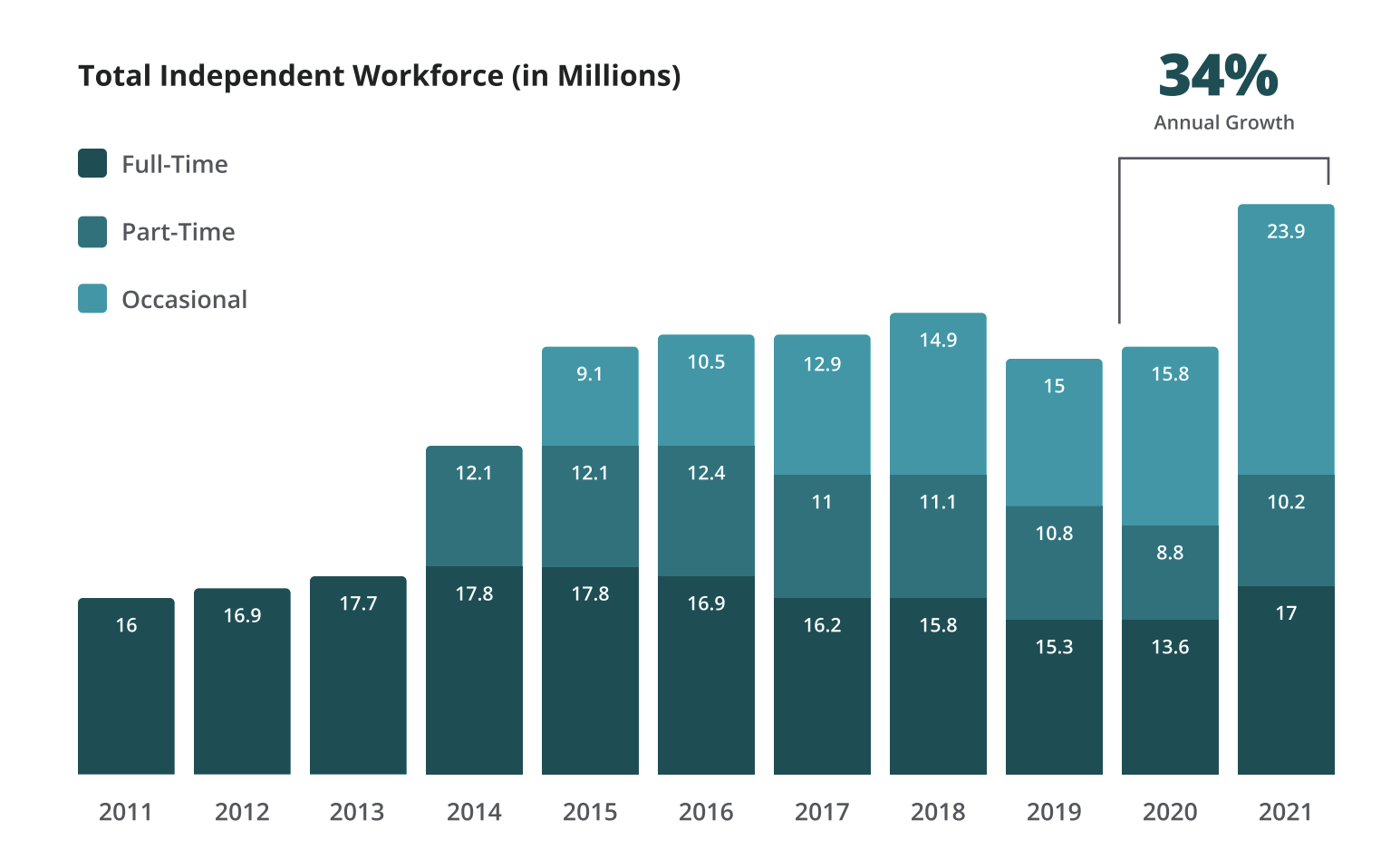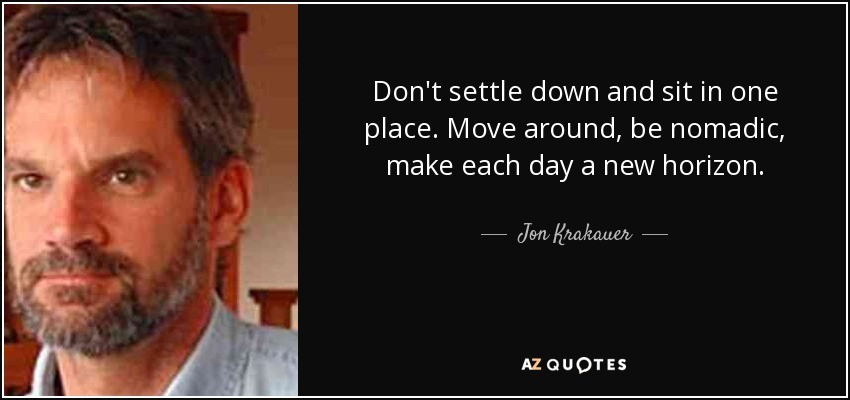It is unclear who started or coined “digital nomad”, but the internet seems to settle on a book by the same term, written by Tsugio Makimoto and David Manners , as the popular start of it all. Released in 1997, you can imagine that the book was ahead of its time.
The book dives deep into the possibility of using technologies to support man’s basic needs to live, work, and exist on the move or travel. In hindsight, many would agree that these two authors were definitely on to something, considering that it’s our natural desire to roam and chase different fulfillments.
According to neuroscientists, traveling is a way to rewire our brain as the new experiences are the key to building new neural pathways. Philosophers believe that it’s the key to expanding your mind and spirit. All sorts of researches, surveys and studies also prove the link between traveling and happiness, also health as benefits to living a full life.
The Rise of Digital Nomad
By 2025, some studies estimate that a whopping 35.7 million Americans or 22% of the workforce will be remote workers. Meanwhile, the MBO Partners 2021 State of Independence Study noted an increase of over 50% in the numbers of digital nomads in the U.S, with about 15.5 millions now choosing location-independent & technology-enabled lifestyle.

In a way, the pandemic has really shifted the perspective of work and opened up the possibilities of working from anywhere. Better yet, it puts digital nomad on the map as one of the accepted norms. Flexible work models are now adapted by major corporations such as Lift, Airbnb, 3M, Google and you name it. Spotify said it best with “ work isn’t somewhere you go, it’s something you do”. What was once a privilege to those in creator economy or influencer market, is now accessible even for white collar workers.
The interest in new work location has also seen changes in travel visas or “nomad visa”. More foreign countries are introducing expat-friendly options, from easy work permits to renewal and also longer stay period and so on. To date, a total of 46 countries have jumped on the digital nomad visa bandwagon and one can expect a lot more soon.
It’s important to note that technology has definitely a heavy play of hand in making the idea of digital nomad so attainable and accessible. Long before the pandemic, people have benefited from services like Airbnb to seek accommodations and other travel hubs that connect people from global communities. Now, more products and services exist to support digital nomads including co-living spaces, collaborative work tools, smart gadgets, VPN providers, job sites, tip& tricks forums, etc.
Gone is the idea that digital nomads are limited to young backpackers hopping from one spot to another. Digital nomads are now inclusive to families, full-timers, freelancers, students or homeschoolers, single, married, young or old.
Pros & Cons of Digital Nomad Lifestyle
Like everything in life, there are always 2 sides of things. Digital nomad lifestyle too is not immune to the fact, and here are some of the pros and cons that most have experienced:

Pros of Digital Nomad Lifestyle
- Opportunities to achieve work-life balance
First and foremost, this lifestyle offers the best advantage to those who do not prefer the 9 to 5 routine or be restricted by location. This is the opportunity to seek fulfillment in so many ways, from a sense of freedom, lack of attachment, boosted happiness and other fulfilling rewards that cannot be measured by money.
The digital nomad lifestyle is about constantly learning, enjoying new experiences, and being pushes outside of comfort zones. The elusive work-life balance philosophy is now within your reach everyday. This is the kind of life-changing journey that allows you to find a new inner self, experience personal development and get inspired.
This might seem trivial to some people, since you can’t really quantify happiness or health - but this advantage is so huge that it’s safe to say that everyone kind of owes it to themselves to try it once in a lifetime.
- Cheaper costs of living
The digital nomad lifestyle can be acquire much cheaper than most people think. Other than the initial investment, such as airfare tickets, accommodations, visa and standard expenses, the cost of living in affordable destinations can be more comfortable to your pocket than your regular hometown.
Naturally, the total costs will differ from individuals and the location they settle in. But the digital nomad lifestyle is not limited to the rich only, but rather your willingness to be flexible and make adjustments as necessary. In fact, many digital nomads can enjoy more of a lavish lifestyle than they are able to afford in their home country as their money goes further in terms of rate exchange.
- Living on your own terms
Living on your own terms means saying goodbye to :
Office politics, long commute, applying for leave, tied to your desk, stressing out and the mundanity of living the same scene everyday, you name it.
This is not to say that you’ll live happily ever after once you’ve become a digital nomad, but at least there’s the sense of control when you’re on your own and being able to work wherever and whenever you want. You still will have to put in the hours, but at least you dictate most of the work process now.
“The core of mans' spirit comes from new experiences.” ― Jon Krakauer, Into the Wild
Cons of Digital Nomad Lifestyle

- It might not be for you
Becoming a digital nomad is worth it if you are the type of person who likes location freedom, flexibility, and unpredictability. But let’s admit it, everyone has their own preferences and it’s totally okay if you are not wired to love the digital nomad lifestyle. Some people simply thrive on routines and there’s nothing wrong with that.
- The opposite spectrum of all the opportunities
Yes, all the amazing opportunities listed in the pros above may come with a side of negatives. Many digital nomads confess to feeling lonely, homesick, or isolated. They may not make friends that easily, especially if you are a solo traveler. Or you may be experiencing culture shocks, language barrier or other difficult adjustments, such as : lack of access to healthcare, logistic issues, uncomfortable accommodations or infrastructures etc.
Many also feel it can be harder to focus when the work environment is too undefined or blurred. At times, it’s hard to separate where the work stops and where the living comes in, resulting in burnout or not reaching the supposed “work-life balance” goals.
There may also be stigma within your clients or superior that you’re not as hardworking or professional since you are living the holiday life 24/7.
- Harder to budget

If you plan to always be on the move, then there’s maybe the issue with spending more money on visas, different currencies and different standards of living which makes it hard to plan and budget. Unless you are better established, it’s likely that you’ll find surprises like big purchases or necessary spending in your new location.
Conclusion
As outlined, there are numerous benefits of being a digital nomad - but it comes with its own set of challenges too. It is important not to idealize the lifestyle, but rather to understand how to make the most for yourself should you pursue this kind of setting. A nomadic lifestyle may seem like the key to happiness, but it’s not for everybody.

There is also a saying that “Happiness comes from within”, and a change of scenery won’t fix a bad outlook in life. But, if you crave adventures and have the desire to try it, the time is now. If there’s a way for you to make your digital nomad wishes to reality, plan your way to it because the world is your oyster and it’s ready for your taking.
And if all fails, you can always plan your way back home and still consider everything a big WIN.